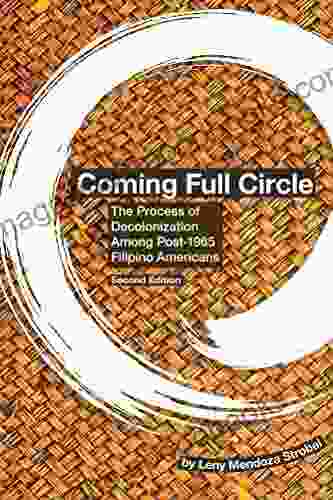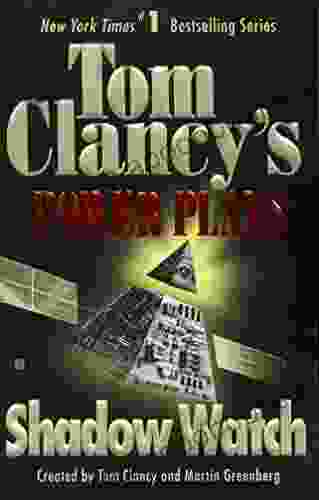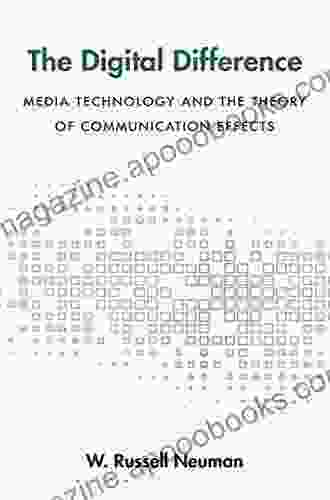The Process Of Decolonization Among Post 1965 Filipino Americans

: A Legacy of Colonialism
The history of Filipino Americans is inextricably intertwined with the legacy of colonialism. From the Spanish colonization in the 16th century to the American annexation in the 20th century, Filipinos endured centuries of foreign rule that left a profound impact on their culture, identity, and social dynamics.
4.9 out of 5
| Language | : | English |
| File size | : | 957 KB |
| Text-to-Speech | : | Enabled |
| Screen Reader | : | Supported |
| Enhanced typesetting | : | Enabled |
| Word Wise | : | Enabled |
| Print length | : | 278 pages |
| Lending | : | Enabled |
Following the passage of the Immigration and Nationality Act of 1965, which significantly increased immigration from Asia, the Filipino American community underwent a major demographic shift. Large numbers of Filipinos arrived in the United States, bringing with them their unique experiences and perspectives shaped by their colonial past.
Navigating the Maze of Assimilation
Upon their arrival in the United States, post-1965 Filipino Americans faced the challenges of assimilation into a predominantly white society. They encountered societal expectations to adopt American values and conform to mainstream cultural norms. Many Filipinos grappled with the dilemma of preserving their cultural heritage while adapting to their new surroundings.
This process of assimilation was not without its struggles. Filipino Americans often faced discrimination, prejudice, and stereotypes that reinforced their perceived status as outsiders. They experienced a clash between their own cultural values and the dominant American culture, leading to feelings of alienation and disconnection.
Embracing Resistance and Empowerment
As the Filipino American community grew and matured, a spirit of resistance and empowerment emerged. Faced with the challenges of racism and discrimination, Filipinos began to organize and fight for their rights. They formed community organizations, participated in social movements, and engaged in political activism.
Through these initiatives, Filipino Americans sought to reclaim their cultural identity and demand recognition within American society. They challenged stereotypes and advocated for visibility and representation in all aspects of life, from education to the media.
The Evolving Concept of Identity
The process of decolonization has had a profound impact on the identity of post-1965 Filipino Americans. As they negotiated the tensions between assimilation and resistance, their sense of belonging and identity evolved.
Many Filipinos came to embrace a hyphenated identity, identifying themselves as both Filipino and American. They sought to bridge the gap between their heritage and their experiences in the United States, creating a unique and dynamic cultural synthesis.
Historical Context and Immigration
To fully understand the experiences of post-1965 Filipino Americans, it is essential to examine the historical context that shaped their immigration. The Immigration and Nationality Act of 1965 abolished the national origins quota system that had previously restricted immigration from Asia. This change opened the door to a surge of Filipino immigrants, primarily from professional and middle-class backgrounds.
The arrival of these Filipinos brought new skills, talents, and perspectives to American society. They contributed to the growth of the American economy and enriched the cultural landscape. However, they also faced unique challenges related to language barriers, cultural differences, and the legacy of colonialism.
The Importance of Asian American Studies
The study of Asian American history and experiences, including those of post-1965 Filipino Americans, is vital for gaining a comprehensive understanding of American society. Asian American Studies scholars have made significant contributions to our understanding of the complexities of identity, immigration, and the impact of colonialism on racial and ethnic minority groups.
Through research, teaching, and community engagement, Asian American Studies helps to challenge stereotypes, raise awareness, and foster cross-cultural understanding.
: An Ongoing Journey
The process of decolonization among post-1965 Filipino Americans is an ongoing journey, marked by both challenges and triumphs. As they navigate the complexities of their hyphenated identity, Filipinos continue to strive for inclusivity, representation, and empowerment.
By understanding the historical, cultural, and social forces that have shaped their experiences, we can better appreciate the resilience and determination of post-1965 Filipino Americans and recognize their valuable contributions to American society.
4.9 out of 5
| Language | : | English |
| File size | : | 957 KB |
| Text-to-Speech | : | Enabled |
| Screen Reader | : | Supported |
| Enhanced typesetting | : | Enabled |
| Word Wise | : | Enabled |
| Print length | : | 278 pages |
| Lending | : | Enabled |
Do you want to contribute by writing guest posts on this blog?
Please contact us and send us a resume of previous articles that you have written.
 Book
Book Novel
Novel Page
Page Chapter
Chapter Text
Text Story
Story Genre
Genre Reader
Reader Library
Library Paperback
Paperback E-book
E-book Magazine
Magazine Newspaper
Newspaper Paragraph
Paragraph Sentence
Sentence Bookmark
Bookmark Shelf
Shelf Glossary
Glossary Bibliography
Bibliography Foreword
Foreword Preface
Preface Synopsis
Synopsis Annotation
Annotation Footnote
Footnote Manuscript
Manuscript Scroll
Scroll Codex
Codex Tome
Tome Bestseller
Bestseller Classics
Classics Library card
Library card Narrative
Narrative Biography
Biography Autobiography
Autobiography Memoir
Memoir Reference
Reference Encyclopedia
Encyclopedia Thomas Fleming
Thomas Fleming Suzanne Keith
Suzanne Keith Helena Denisoff
Helena Denisoff Paul Outhwaite
Paul Outhwaite Howard Schultz
Howard Schultz Peter J Gosling
Peter J Gosling Howard Jacob Karger
Howard Jacob Karger Saranna Dewylde
Saranna Dewylde Isabella Woods
Isabella Woods Ray W Christner
Ray W Christner Rene Woodhy
Rene Woodhy Haruki Murakami
Haruki Murakami Ian Mcnulty
Ian Mcnulty Honey Phillips
Honey Phillips Ivo Mijnssen
Ivo Mijnssen The Boston Globe
The Boston Globe Hemant Gupta
Hemant Gupta Patricia Davids
Patricia Davids John Pimlott
John Pimlott Ivan Anzellotti
Ivan Anzellotti
Light bulbAdvertise smarter! Our strategic ad space ensures maximum exposure. Reserve your spot today!

 Theodore MitchellUnlocking the Wisdom of Antiquity: Discover "Select Epistles" from Cambridge...
Theodore MitchellUnlocking the Wisdom of Antiquity: Discover "Select Epistles" from Cambridge... Chinua AchebeFollow ·4.7k
Chinua AchebeFollow ·4.7k Orson Scott CardFollow ·16.2k
Orson Scott CardFollow ·16.2k Dustin RichardsonFollow ·16.6k
Dustin RichardsonFollow ·16.6k Chance FosterFollow ·9.3k
Chance FosterFollow ·9.3k Thomas PowellFollow ·12.6k
Thomas PowellFollow ·12.6k Junot DíazFollow ·16k
Junot DíazFollow ·16k Pat MitchellFollow ·9.4k
Pat MitchellFollow ·9.4k Hugh ReedFollow ·6.7k
Hugh ReedFollow ·6.7k

 Stanley Bell
Stanley BellUnlock the Secrets of Powerball Success: Master the...
Prepare to shatter the odds and transform...

 Ernest J. Gaines
Ernest J. GainesPatti Smith Horses 33 55: A Photographic Journey into a...
Journey into the raw and...

 Isaiah Price
Isaiah PriceMoyamoya Disease Diagnosis And Treatment: A Comprehensive...
Moyamoya Disease...

 Joseph Foster
Joseph FosterRecent Advances in Ophthalmology, Volume 14
Editor: [Editor's...
4.9 out of 5
| Language | : | English |
| File size | : | 957 KB |
| Text-to-Speech | : | Enabled |
| Screen Reader | : | Supported |
| Enhanced typesetting | : | Enabled |
| Word Wise | : | Enabled |
| Print length | : | 278 pages |
| Lending | : | Enabled |













